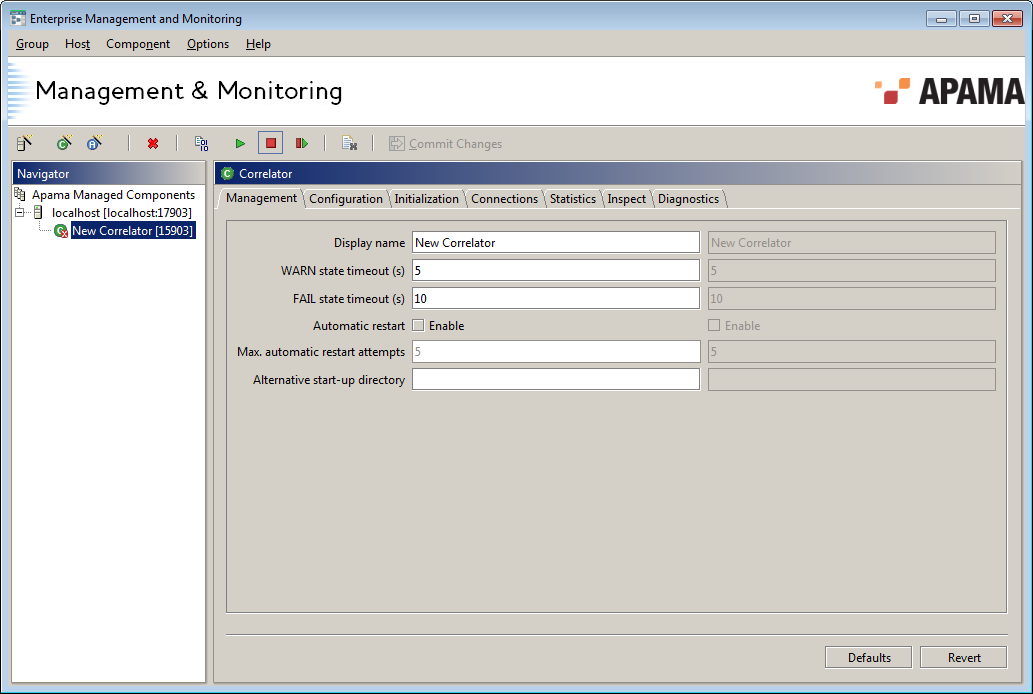Management tab
This tab contains a number of parameters that are relevant to managing a correlator.
The parameters on the Management tab are:
 Display name
Display name – This is the name to associate with this correlator in the Navigation Pane. The name can be changed at any time, even if the correlator has already been started.
 WARN state timeout (s)
WARN state timeout (s) – This is the number of seconds to wait before moving the component into the
WARN state if it is not changing state (stopping/starting/ restarting) as required. This setting can be changed at any time. The default is 5 seconds.
 FAIL state timeout (s)
FAIL state timeout (s) – This is the number of seconds to wait after entering the
WARN state before moving into the
FAIL state, if the component has still failed to change state as expected. This setting can be changed at any time. The default is 10 seconds.
 Automatic restart enable
Automatic restart enable – Tick to configure EMM to monitor the selected component. If it were to stop unexpectedly, EMM would automatically restart it – after waiting the amount of time required for it to enter the
FAIL state (and subject to the configured limit on the number of restart attempts described below). This setting can be changed at any time.
Note: Component monitoring and auto-restart is carried out by EMM and requires EMM to be running.
 Max. automatic restart attempts
Max. automatic restart attempts – This option is only available if
Automatic restart is enabled. It specifies the total number of automatic restarts to perform (or attempt) without user intervention. The count is made from when you last enabled
Automatic restart and committed, or explicitly stopped/started/ restarted the correlator. This setting can be changed at any time.
 Alternative start-up directory
Alternative start-up directory – By default all components are started from the current working directory of the Sentinel Agent running on the host in question (see
Sentinel Agents). If you wish, you can provide an alternative startup folder here.
Click on the Commit Changes button when you are finished customizing the new correlator. This applies these outstanding changes.
The Default button resets all outstanding parameter values to their defaults, while the Revert button reverts the outstanding parameter values to their current committed values.

